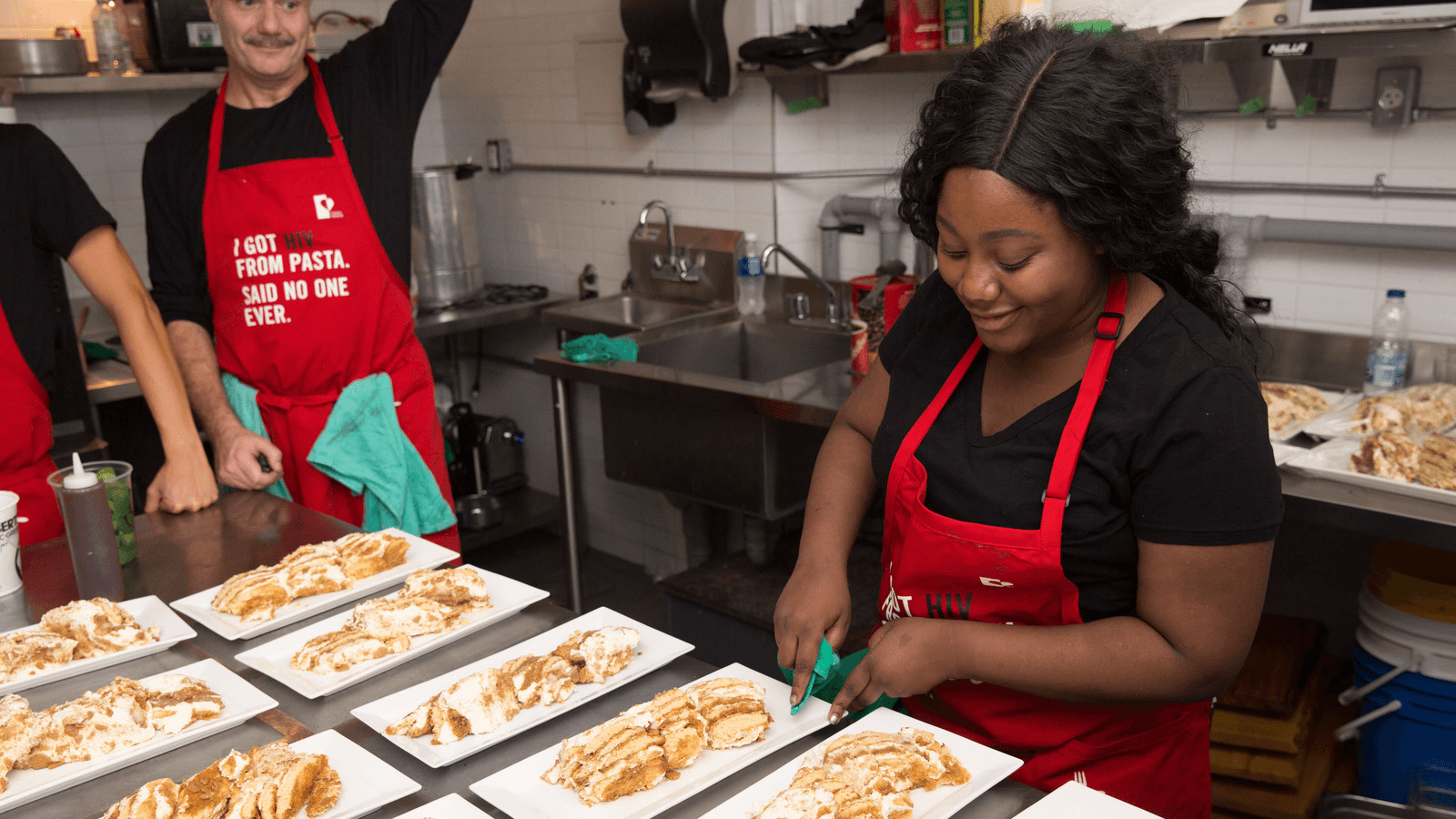Mulaba Habanyama, 24, preparing her gingerbread tiramisu.
"Think you can get HIV from food? Bite me."
That was just one of the slogans on aprons worn by 14 chefs at Canada's first and only pop-up HIV eatery, held earlier this month in Toronto.
For two days, Nov. 7 and 8, every dish served at the pop-up — called June's HIV+Eatery — was prepared by cooks who are HIV-positive.
For $125, diners were treated to a menu of northern Thai potato leek soup, roasted heirloom salad, a "surf and turf" main course and a gingerbread tiramisu.
Both nights were sold out.
The idea was hatched after a survey was taken to see how comfortable Canadians would be eating food cooked by someone with the virus.
"The results were staggering," says Joanne Simons, CEO of Casey House Canada's only hospital dedicated to people with HIV/AIDS. Casey House conducted the survey.
"Fifty percent of Canadians would not knowingly share or eat a meal prepared by someone with HIV," says Simons. "So [the eatery] was a great way for us to start a conversation across the dinner table, where you share love and compassion while eating a meal and have a discussion of HIV today."
Fighting a lingering stigma
According to the Public Health Agency of Canada, the incidence of HIV in Canada seems to have declined in the last seven years.
Simons says medical advancements have changed over the last three decades so that HIV, once considered a death sentence, can be treated with medications. But the fear still lingers.
Some people still think you can get HIV through saliva or sweat, says Mulababa Habanyama, one of the 14 HIV-positive chefs to cook at the pop-up restaurant.
She recalls hearing people ask, "What if you cut your hand in the restaurant?" The answer? Treat it just as any other regular chef would.
Habanyama, 24, was born with HIV, contracting it from her parents. She was born in Zambia but moved with her mother and sister to England when she was young. Living with the disease at such a young age was very isolating.
"My mom said some families have secrets and we keep this as a secret," she says. She learned to be guarded, and was afraid to go on sleep-over or going on a date with someone because "you don't know if that person is going to be in your life forever."
Now she's upfront about her condition. "It feels freeing," she says.
"Is HIV the only thing about me? No, but it does play a big part because no, I don't like if I go on a date that it's something that could change someone's attitude. But I'm very grateful for what it's given me as a person because I am so compassionate in the way I look at people. I never judge anybody and I'm friends with people from all walks of life."
One thing she's learned is that she doesn't have to wait to see if someone wants to be her friend or not. "I went on a blind date with a guy and decided I didn't like him and I told him I was HIV-positive," she says. "So I tried to use it as something bad and he didn't mind. … That just shows people are amazing."
Simons, the Casey House CEO, says there are already plans in the works to pop-up again throughout Canada and internationally. Habanyama doesn't plan to be a chef — but says she's ready to cook again if Casey House comes calling.
